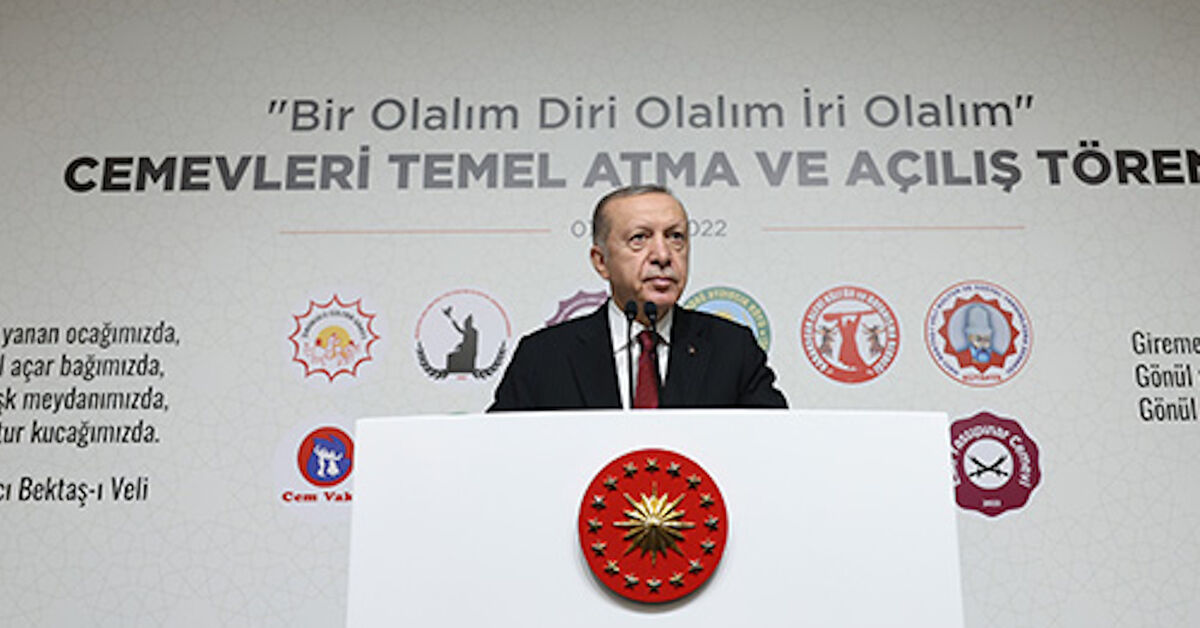Religious identity issues have come to the fore of Turkish politics again amid moves by the opposition and the government to court voters beyond their traditional grassroots ahead of crucial elections next year.
In a surprise move last week, main opposition leader Kemal Kilicdaroglu proposed a legal safeguard for the freedom of female public servants to wear the Islamic headscarf, seeking to allay concerns among the pious that his secularist Republican People’s Party (CHP) might reinstate a ban abolished a decade ago if it comes to power next year. In a matter of days, President Recep Tayyip Erdogan announced a plan to create a public institution to run and help fund cemevis — the houses of worship of Turkey’s sizable Alevi community, which represents a distinct and often ostracized branch in Islam. The body will be attached to the Culture and Tourism Ministry, and Alevi religious leaders will be entitled to public salaries, he said.
Though Erdogan presented the plan as a “major democratization reform,” many Alevi groups saw it as an attempt to place cemevis under government control or woo Alevis for his re-election bid next year.
Alevi suspicions of Erdogan’s intentions stem mostly from the controversial remarks he and members of his Justice and Development Party (AKP) have made about Alevism over the years. The community complains that young Alevis have been routinely shut out of public employment under the AKP.
For Ercan Gecmez, head of the Haji Bektash Veli Anatolian Culture Foundation, a major Alevi group, attaching cemevis to the Culture and Tourism Ministry is “degrading” and shows that Erdogan places Alevism in a category inferior to Sunni Islam.
“We have many concerns,” Gecmez told Al-Monitor, arguing that the project was aimed at assimilating Alevis. He warned that Alevis would resist any government attempt to interfere with their religious rites.
Like the Shiites, the Alevis venerate Ali, the Prophet Mohammed’s son-in-law, but their faith is a unique version of Islam that mixes Sufi traditions with Anatolian folklore. Alevi religious rituals involve singing and dancing, with men and women mingling freely. Persecuted as heretics in the Ottoman era and often the target of violence and discrimination in modern times, Alevis remain deeply fearful of Sunni bigotry, are usually pro-secular, and vote mostly for the CHP and leftist parties. The community has ethnically Turkish and Kurdish segments.
For Kemal Bulbul, a parliament member from the pro-Kurdish Peoples’ Democratic Party, Erdogan’s move is a pre-election investment. “He thinks he can count on this to muster Alevi votes, but he’ll fail to make the impact he hopes for,” Bulbul told Al-Monitor.
Reha Camuroglu, an Alevi historian and writer who has served as an AKP lawmaker, opined that Erdogan might double down by incorporating his Alevi opening into a planned constitutional amendment that would cover also other issues such as a constitutional safeguard for the headscarf. The proposal, he said, is likely to include a provision formally recognizing the cemevi as a house of worship in a bid to bolster Erdogan’s popular support ahead of the polls, due in June 2023 at the latest.
Some Alevi figures and groups have welcomed Erdogan’s opening, especially the plan to put Alevi religious leaders on the public payroll. But their voice has remained rather weak in the community.
Source:Al-Monitor



